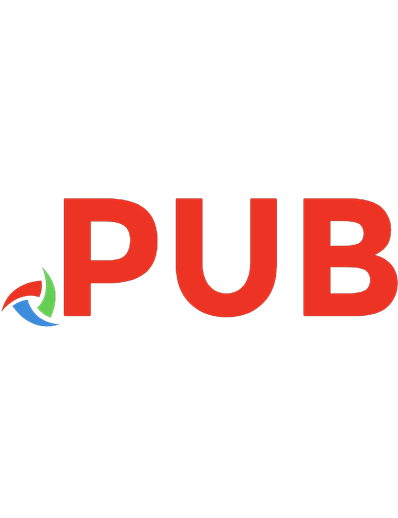Leading Solutions Essays in Business Psychology 9789813364851
Offers a panoramic view of 21st century working, balancing vision with practical observations Engages readers on key top
365 66 5MB
English Pages 387 Year 2021

- Categories
- Business
- Management
- Commentary
- key topics of business psychology and organizational leadership, leaders are made, not born
Table of contents :
Foreword
Reference
Preface
Reference
Contents
Emerging Theories of Leadership
Ethical and Relational Leadership
A Key Component of Organizational Leadership
Ethical Principles and Code of Conduct of the American Psychological Association and Student Rights and Responsibilities of the Chicago School of Professional Psychology
The American Psychological Association
The Chicago School of Professional Psychology
Dilemmas in Assessing Ethical Leadership
Living and Advocating Ethics: Principles for Current and Future Leaders
Toward a New Modus Vivendi in Organizational Leadership
References
Paradox and Neuroscience: Emerging Theories of Leadership
Why Theories Emerge
Paradoxical Leadership
Neuroscience Leadership
Conclusion
References
Personal Leadership Development Plans: Essentials and Practicum
Essentials of Personal Leadership Development Plans
Integrating Emerging Theories of Leadership
Outline of a Personal Leadership Development Plan
Personal Philosophy of Leadership
References
Personal Philosophy of Leadership
Formative Experiences of Leadership
Next Steps for Leadership
On Personal Philosophies of Leadership
My Personal Philosophy of Leadership
References
Personal Philosophy of Leadership (2nd Edition)
My Personal Philosophy of Leadership (1st Edition)
Emerging Perspectives on Leadership
My Personal Philosophy of Leadership (2nd Edition)
Postscript
References
Review of Situational Leadership® After 25 Years—A Retrospective (Blanchard, Zigarmi, & Nelson, 1993)
The Research Article
Purpose of the Research
Literature Review
Methodology
Data Analysis and Findings
Discussion and Conclusions
Overall Assessment of the Research Article
References
Ethical & Cultural Considerations
Ethics: My Own Perspective
A Blessed Encyclical
Casting Light or Shadow
A Delectus of Ethical Perspectives
Johnson’s (2015) Ethical Perspectives: An Appreciative Inquiry
Making Ethical Decisions
Concluding Remarks
References
Life-Markers and Personal Values
References
Reflections on Four Case Studies in Ethics
The Spectacular Rise and Fall of a Humanitarian Hero
Chaos on K2
Rooting Out Corruption at Siemens Global
Inside Job
References
Group & Team Leadership
The Self in Teams
On Teams: What’s in a Word?
On Self: What’s in a Word?
The Self in Teams
References
The Self in Teams (Cont’d)
Forming–Storming–Norming–Performing in Team A
The Self in Team A
On Self-Growth in Teams
References
The Self in Teams (Coda)
Performing in Team A: A Self-Evaluation
The Self in Teams: Finding Your Role
References
Leadership Self-Development
Establishing Your Fundamental Self
Getting to the Roots of Positive Forms of Leadership
A Personal Mission Statement
Entering the Fundamental State of Leadership
Four Questions for Positive Change
Am I Results Centered?
Am I Internally Directed?
Am I Other Focused?
Am I Externally Open?
On Motive, Means, and Opportunity
References
The Challenges of Learning from Experience
Render unto Caesar the Things that Are Caesar’s
Coursework and Training ≠ Leader Development
Learning from Experience
Experiential Learning: Are We There Yet?
Yip and Wilson (2010): Wrong Conclusions from Right Premises
References
The Full Range Leadership Model: Essentials and Practicum
Understanding the Multifactor Leadership Questionnaire Scales
Administering the Multifactor Leadership Questionnaire
Interpreting the Multifactor Leadership Questionnaire 360 Leader’s Report
Reflecting on My MLQ 360 Leader’s Report
Approach
Average Scores
Aggregate Scores
Style Strengths
Areas for Development
Analyzing My MLQ 360 Leader’s Report
A Disciplined and Open Mind
Style Strengths
Areas for Development
Conducting Individual Planning and Goal Setting
Afterword
Appreciating the Multifactor Leadership Questionnaire
Taking Back Control
References
Management Philosophy & Practice
A Taxonomy of Management Theories
References
Mintzberg’s Managing: Implications for Coaching and Training
Leadership vs. Management
Enough of Leadership
Coaching and Training New-Era Managers
Training
Coaching Ourselves
Summing up
References
Mintzberg’s Model of Managing: Random Thoughts from an Observation
The Nature of Managerial Work
Eight Hours of Managing: The Task
Eight Hours of Managing: The Case Study
Eight Hours of Managing: Method of Analysis
Eight Hours of Managing: Findings
Eight Hours of Managing: Reactions
References
Organizational Diagnosis & Cultural Dynamics
Synergizing the Competing Values Framework and the Six-Box Model
Competing Values at ICIMOD
So What?
Synergizing Cameron and Quinn’s Competing Values Framework and Weisbord’s Six-Box Model
Conclusion
References
Personality & Lifespan in the Workplace
Blustein’s Psychology of Working: A Very Short Introduction
Abstract and Setting
Intent
Limitations of Previous Psychology-of-Working Perspectives
Blustein’s Psychology of Working
References
Contextual Factors in Working
Functions of Work
Contextual Factors of Work
Contextual Factors of Work: An Appreciation
Coping with the Global Contextual Factors of Work
References
Developing Expert Leadership
Quid Leader Development?
Terms of Reference for Leader Development
Theoretical Propositions for Leader Development
Practicing Leadership
Identity and Adult Development Processes
Enhancing Leader Development
References
Identity Processes in Leader Development
On Becoming a Leader: The Premise
On Becoming a Leader: Factors of the Environment
On Becoming a Leader: Self-regulation Processes
On Becoming a Leader: Synergizing Self-regulation Processes
References
Leader Development Through Work Experience
How Do Effective Leaders Learn?
The Context of Learning
Learning from Experience
References
Moral Development for Authentic Leadership Effectiveness
Quid Moral Development?
Moral Development and Leadership
Moral Development for Leader Development
Capacitating Authentic Decision-Making and Behavior
References
Seven Entries on Twenty-First Century Working
Ideas, Opinions, and Actions for Personal Leadership Development
Social Identity Theory and Its Contribution to the Growth and Development of Leaders
Business Success: Is Authentic Leadership Necessary and Sufficient?
“Relationships” with Careers
Leader Development Through Learning from Experience
Social Barriers and Working
Integrating Adult, Leader, and Leadership Development in the Twenty-First Century
References
The Reflective Judgment Model: What Role in Leader Development?
A Cognitive Development Toolbox
Quid Reflective Judgment?
The Reflective Judgment Model: What Role in Leader Development?
References
Professional Development
Analyzing the Logic of Articles and Textbooks: Essentials and Practicum
Introduction
The Logic of “Transformational Leadership Behaviors of School Principals: A Qualitative Research Based on Teachers’ Perceptions”
Conclusion
References
Reading Research Articles
The Scaffolding of Research Articles
Thinking Critically About Research
Is Critical Thinking Enough?
References
Scholarly Argument: Linking Doctoral Research to Practice
What Is Happening?
What Do We Know? What Assumptions Have We Made?
What Point of View Can We Reasonably Hold?
Why Are Doctoral Studies Important? What Key Concepts or Theories Guide Our Reasoning?
What Might Be the Purpose of a Research Topic on Doctoral Studies? What Data, Information, and Evidence Might the Reasoning for It Be Based on?
What Conclusions Might Be Drawn?
What Implications and Consequences Might There Be?
References
Psychological, Socio-Cultural, & Political Dimensions of Organizations
Critical Psychology and Organizations: The Case of the United Nations
Critical Psychology and Organizations
The Case of the United Nations
Critical Psychology and the United Nations
References
Development of Critical Psychology
Locating Critical Psychology Approaches
The Historicity of Critical Psychology
Critical Psychology for the Twenty-First Century
References
Minority Population Analysis: The Aeta of the Philippines
Characterizing Indigenous Peoples and Their Vulnerability
The Aeta of the Philippines
Domination, Marginalization, and Exploitation: The Aeta Experience
Concluding Remarks
References
Minority Populations: There Are More Than Meets the Eye
Minority Population Analysis
Globalization and the Multiplication of Minorities
Critical Psychology for Minority Populations
The Intersection of Critical Psychology and Globalization
References
Qualitative Research Methods
Book Analysis of Interviewing as Qualitative Research (Seidman, 2013)
Introduction
Synopsis (and Reflections)
Learnings
References
Research Concept Paper for Leading Organizations of the Future
Primary Reasons for Undertaking the Study
Statement of the Problem
Research Question
Conceptual Framework
Preliminary Literature Review
Preliminary Methods
References
Strategic Change Management
Change Management Strategy in Action: Independent Evaluation for Learning
Independent Evaluation for Learning
The Problématique of Independent Evaluation
Objectives of Evaluation Activity: The Need for Organizational Change and the Issues to Address
Independent Evaluation for Learning: Planning and Delivering Organizational Change
Conclusion
References
Schein’s Process Consultation: Three Reactions
The Gentle Art of Asking Instead of Telling
Reaction: The Case of Either–Or
Reaction: Assumptions
Reaction: The Concept of Client
References
Systems Theory
Five Notes on Systems Theory
The Skeleton of Science
More Than the Sum of Its Parts? Or Other?
Open and Closed Systems
Leverage in Systems
The Disciplines of the Learning Organization
References
Idealized Design for Virtual Teaming: A Modest Proposal
General Electric’s Setting
On Virtual Teaming
Capacitating Virtual Teaming
Potential Pitfalls and Strategies to Avoid Them
References
Idealized Design: Three Reactions
Define: Idealized Design
Idealized Design: Three Reactions
Enriching Idealized Design
References
Mental Models in and of Organizations
Define: Model
Mental Models in Organizations
Mental Models of Organizations
Learning with Mental Models
References
The Learning Organization Needs No Apology
The Ornithomancy of Trends
Is Relevance an Algorithm?
Doubting Thomas Is Alive and Well
Blessed Is He Who Expects Nothing, for He Shall Never Be Disappointed
Milk the Cow, but Don’t Pull off the Udder
An Inspiring Language of Change
Why not Create Learning Organizations?
References
The Role of Technology in Organizations
Planning and Driving a Digital Strategy
Quid Digital Transformation?
The Nature of Digital Strategies
Terms of Reference for a Digital Strategy
Framing Digital Engagement
Driving Digital Transformation
References
Information and Communication Technology in Organizations: An Evolutionary Perspective
Information: What’s in a Word?
Information and Communication Technology in the Scheme of Things
Information and Communication Technology in Organizations
Information and Communication Technology: What’s Next?
References
Index



![Sport Business in Leading Economies [1 ed.]
9781787435636, 9781787435643](https://dokumen.pub/img/200x200/sport-business-in-leading-economies-1nbsped-9781787435636-9781787435643.jpg)
![Abnormal psychology : leading researcher perspectives [3rd edition.]
9781743764763, 1743764766](https://dokumen.pub/img/200x200/abnormal-psychology-leading-researcher-perspectives-3rd-edition-9781743764763-1743764766.jpg)




